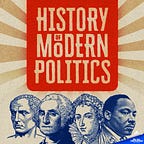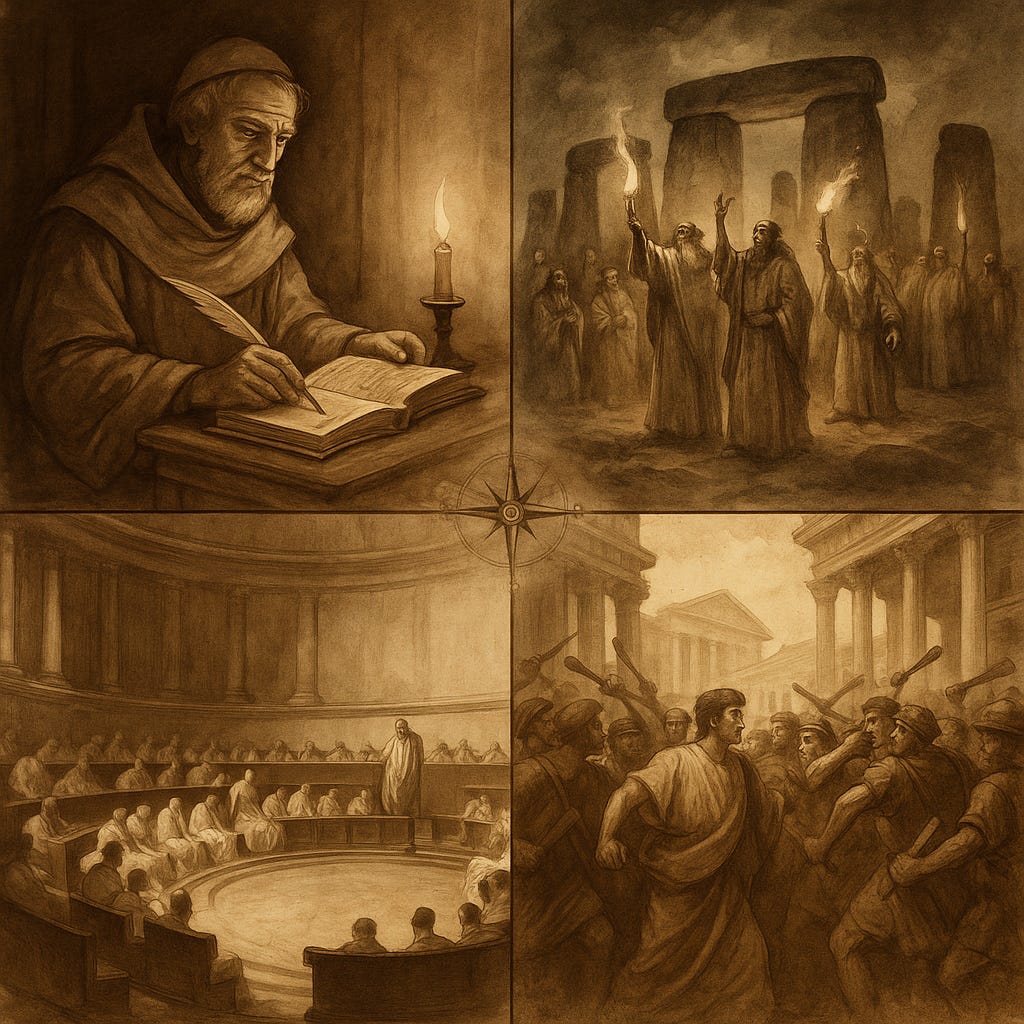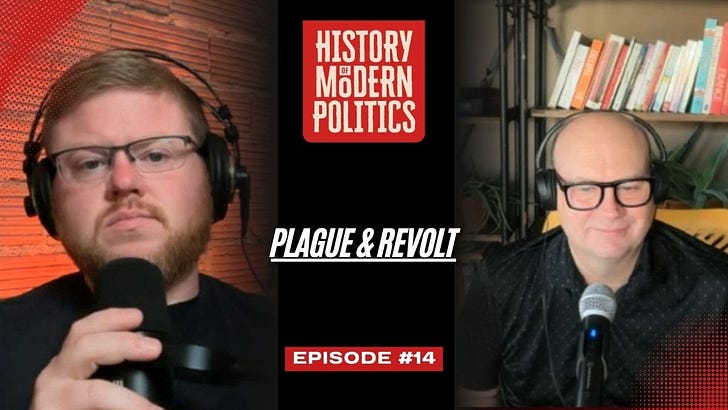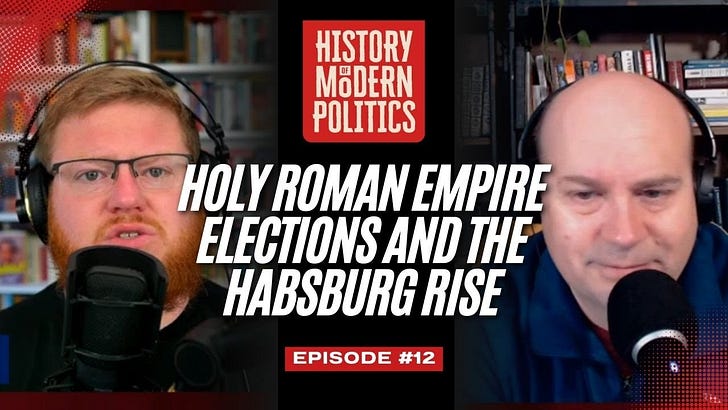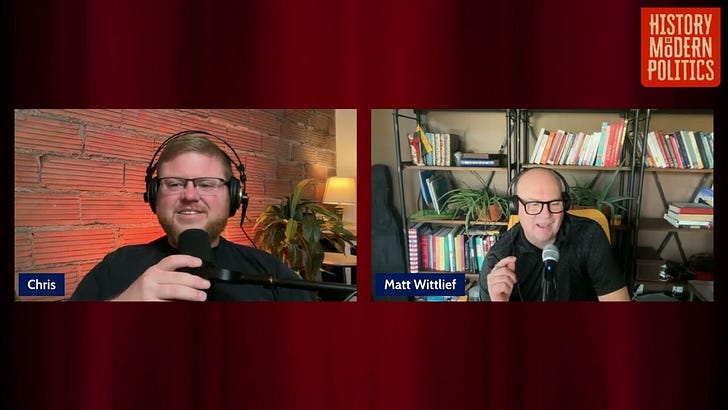Two origin stories open our series: Britain’s myths and Rome’s machinery. Bede and Geoffrey of Monmouth hand us legend—Albion renamed for a Trojan castaway; a past constructed for meaning. Useful, but not the whole story. The other lens is institutional: the Roman Republic’s language of assemblies, magistrates, and a senate—checks that worked, then frayed.
Why Britain first? Because its location at the edge made it unique. Hard to conquer, close enough to trade, the island absorbed ideas without being swallowed by them. The English Channel kept Britain just out of reach for Rome. It’s a perfect laboratory for what happens when clan loyalties meet outside power.
That’s the deeper thread: societies built on kin—status, honor, obligation—slowly learning the grammar of contracts, offices, and law that apply to individuals. You can feel that tension long before there’s a “state” in the modern sense.
Enter Rome as both model and warning. The Republic innovates; ambition erodes it. From the Gracchi to Marius to Sulla, the norms snap one by one—until Caesar turns workaround into system. Money, muscle, maneuver.
My one big takeaway: origins don’t dictate outcomes, but they fix the questions a people keep asking. On Britain’s shores, myth met institution—and politics, as we know it, began. Next episode, we wade from legend into invasion.

